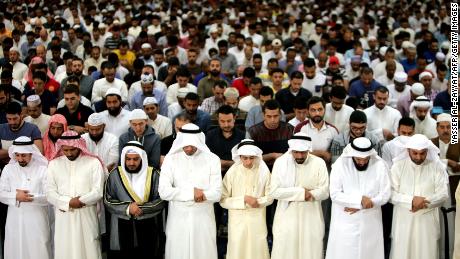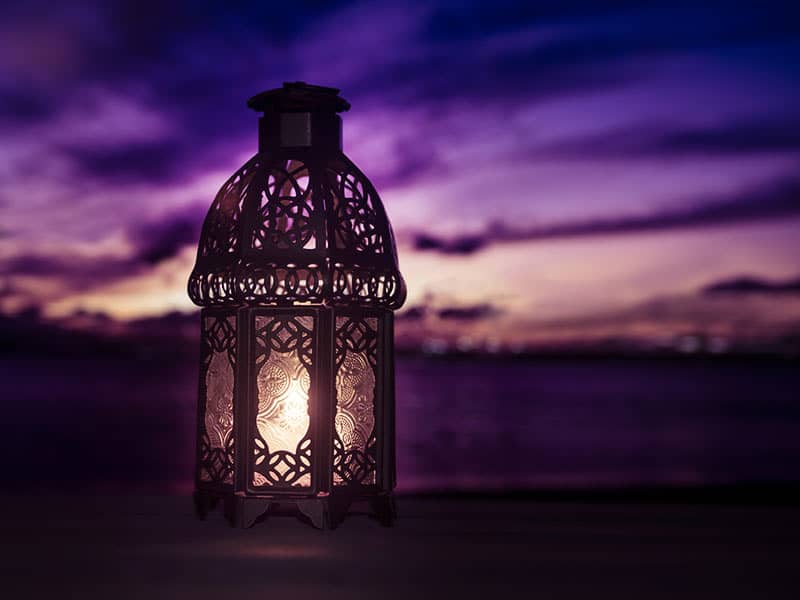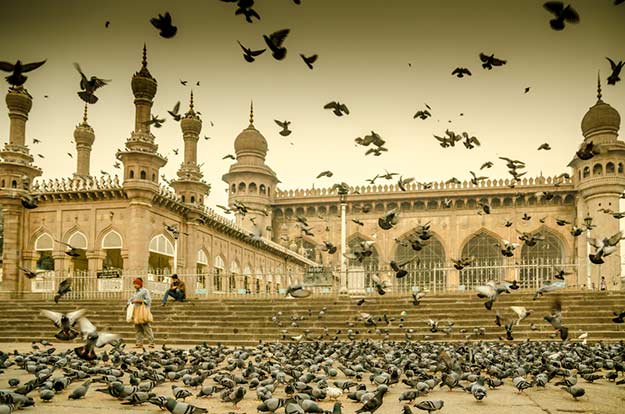Ramadan - Month Of Fast & Prayer.
When Is Ramadan 2020?
Thursday ,
23 April
Saturday , 23 May.
Ramadan 2020 begins at sunset on Thursday, April 23, and ends on Saturday, May 23.
Ramadan is the ninth month and the name is said to mean
'burning/scorching heat' in Arabic as it usually falls within a
particularly hot time of year in that part of the world. It was during
that month that the Quran or Koran - the holy book of Islam - was first
revealed to the prophet Muhammad by Allah (God)
Ramadan
is the ninth month of the Islamic calendar, observed by Muslims
worldwide as a month of fasting, prayer, reflection and community.
Each year since, Ramadan's weeks of spiritual introspection build toward Laylat al-Qadr, or the "Night of Power," believed to be the holiest night of the year.
During that month in 624, Muslims won the Battle of Badr, marking their first major victory against enemies who occupied Mecca, the city where Mohammed was born.
Later, in the year 630, Mohammed led the conquest of Mecca during Ramadan, according to The New Arab. And Muslim armies won other key battles over the centuries during Ramadan.
The fast is intended to remind Muslims of the suffering of those less fortunate and bring believers closer to God (Allah, in Arabic).
 Muslims traditionally break their fast like the Prophet Muhammad
(Peace Be Upon Him) did some 1,400 years ago, with a sip of water and
some dates at sunset.
Muslims traditionally break their fast like the Prophet Muhammad
(Peace Be Upon Him) did some 1,400 years ago, with a sip of water and
some dates at sunset.
After sunset prayers, a large feast known as "iftar" is shared with family and friends.
Iftar is a social event as much as it is a gastronomical adventure. Across the Arab world, apricot juice is an iftar staple.
In South Asia and Turkey, yogurt-based drinks like "ayran" are popular.
 There are certain situations when it is optional to fast during the
month of Ramadan, however, the fast must be made up at a later date.
There are certain situations when it is optional to fast during the
month of Ramadan, however, the fast must be made up at a later date.
This is the rule for the sick or for the one who is traveling.
However, women who are experiencing post-childbirth bleeding or are in their menses are not allowed to fast until their bleeding ends. They must make up the days they missed fasting at a later date.
For those who cannot fast due to a permanent illness or old age, they have to pay fidiya (feeding one poor person) for each day that they have missed.
Pregnant and nursing women, who are afraid that fasting may weaken them or the child, have the option of fasting or not. After Ramadan ends, they have the choice of fasting or paying fidiyah (feeding one poor person) for each day that they had missed during Ramadan.
Celebrations: Community iftars and Community prayers
Date: Thu, 23 Apr, 2020 – Sat, 23 May, 2020
Ends: At the last night of the month of Ramadan
Frequency: every year (lunar calendar)
Number of days: 30
Observed by: Muslims.
History of Ramadan( The Origin)
The term Ramadan literally means scorching in Arabic. It was established as a Holy Month for Muslims after the Quran was revealed to the Prophet Muhammad in 610 CE on the occasion known as Laylat al-Qadr, frequently translated as 'the Night of Power'.
The tradition began in the seventh century and commemorates the month
when the Prophet Mohammed retreated to a cave north of Mecca for
spiritual contemplation.
Each year since, Ramadan's weeks of spiritual introspection build toward Laylat al-Qadr, or the "Night of Power," believed to be the holiest night of the year.
During that month in 624, Muslims won the Battle of Badr, marking their first major victory against enemies who occupied Mecca, the city where Mohammed was born.
What do Muslims do during Ramadan and why?
During the entire month of Ramadan, Muslims are obligated to fast (Arabic: صوم, sawm; Persian: روزہ, roza), every day from dawn to sunset (or from dawn to night according to some scholars). Fasting requires the abstinence from food and drink. ... Fasting the month of Ramadan is one of the Five Pillars of Islam.
The fast is intended to remind Muslims of the suffering of those less fortunate and bring believers closer to God (Allah, in Arabic).
How Do Muslims Break Their Fast?
 Muslims traditionally break their fast like the Prophet Muhammad
(Peace Be Upon Him) did some 1,400 years ago, with a sip of water and
some dates at sunset.
Muslims traditionally break their fast like the Prophet Muhammad
(Peace Be Upon Him) did some 1,400 years ago, with a sip of water and
some dates at sunset.After sunset prayers, a large feast known as "iftar" is shared with family and friends.
Iftar is a social event as much as it is a gastronomical adventure. Across the Arab world, apricot juice is an iftar staple.
In South Asia and Turkey, yogurt-based drinks like "ayran" are popular.
Who May Be Excluded From Ramadan Fasting?
 There are certain situations when it is optional to fast during the
month of Ramadan, however, the fast must be made up at a later date.
There are certain situations when it is optional to fast during the
month of Ramadan, however, the fast must be made up at a later date.This is the rule for the sick or for the one who is traveling.
However, women who are experiencing post-childbirth bleeding or are in their menses are not allowed to fast until their bleeding ends. They must make up the days they missed fasting at a later date.
For those who cannot fast due to a permanent illness or old age, they have to pay fidiya (feeding one poor person) for each day that they have missed.
Pregnant and nursing women, who are afraid that fasting may weaken them or the child, have the option of fasting or not. After Ramadan ends, they have the choice of fasting or paying fidiyah (feeding one poor person) for each day that they had missed during Ramadan.
What is Eid-al-Fitr?
Eid-al-Fitr (Eid al-Fitr, Eid ul-Fitr, Id-Ul-Fitr, Eid) is the first day
of the Islamic month of Shawwal. It marks the end of Ramadan, which is a
month of fasting and prayer. Many Muslims attend communal prayers,
listen to a khutba (sermon) and give zakat al-fitr (charity in the form of food) during Eid al-Fitr.




Comments
Post a Comment